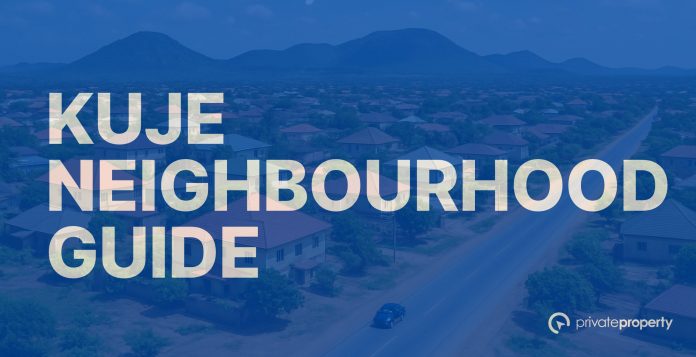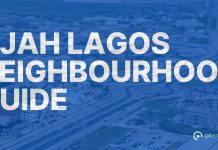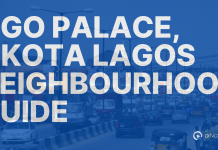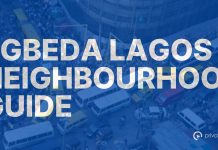When people think of Abuja, images of the sleek Central Business District, the majestic Aso Rock, and the bustling streets of Wuse and Gwarinpa often come to mind. But the Federal Capital Territory is much more than its central urban core. Just a 40-minute drive southwest of the city centre lies Kuje—a rapidly evolving area that masterfully blends rustic tranquillity with modern convenience.
Once considered a mere satellite town, Kuje is now a destination in its own right, attracting families, professionals, and investors seeking a more relaxed pace of life without sacrificing essential amenities.
This guide will walk you through everything you need to know about living in or exploring Kuje.
The Vibe: Suburban Serenity Meets Community Spirit
Kuje offers a welcome respite from the constant hum of central Abuja. The air feels cleaner, the streets are less congested, and the overall atmosphere is noticeably calmer. Don’t mistake this tranquillity for isolation, however.
Kuje is a vibrant and densely populated area with a strong sense of community. It’s a place where neighbours know each other, and local businesses are built on familiarity and trust. The landscape is a fascinating mix of modern housing estates, traditional neighbourhoods, and lush green spaces, offering a unique glimpse into a more authentic, laid-back Nigerian lifestyle within the FCT.
Key Areas and Housing
Kuje is comprised of several districts, each with its own character:
- Kuje Town: This is the original town centre, housing the Kuje Area Council Secretariat. It’s the most bustling part, with a dense concentration of markets, shops, and local government offices. Housing here is a mix of older compounds and newer buildings, often at more affordable rates.
- Gidan Mangoro: Located along the Airport Road corridor before entering Kuje proper, this area is a major residential hub. It’s particularly popular with civil servants and mid-level professionals. You’ll find a high density of affordable duplexes, bungalows, and apartment complexes here.
- Kuchiyako: This is one of the more modern and fast-developing areas. It features several new, gated estates offering more contemporary housing designs, often with better infrastructure like dedicated water lines and more stable electricity. It’s a top choice for young families and those seeking a more planned community environment.
- Gaube: On the outskirts towards the LEA (Lugbe) axis, Gaube is known for its larger plots of land and more spacious properties. It’s ideal for those looking to build a custom home or who desire more land for agricultural or recreational purposes.
Housing in Kuje is generally significantly more affordable than in central Abuja. You can find a decent 3-bedroom apartment or semi-detached duplex for a fraction of the price you’d pay in areas like Wuse 2 or Maitama.
Essential Amenities: Markets, Schools, and Healthcare
Kuje is largely self-sufficient when it comes to day-to-day needs.
- Shopping: The Kuje Main Market is a bustling epicentre of commerce where you can find everything from fresh produce and grains to household goods and clothing. For a more modern shopping experience, there are several well-stocked supermarkets and mini-marts scattered around Gidan Mangoro and Kuchiyako, including popular chains like NextPlus Supermarket.
- Education: The area is well-served by educational institutions. You’ll find a range of public primary and secondary schools alongside reputable private schools such as The Premier Academy, a highly regarded international school located within Kuje.
- Healthcare: For medical needs, residents have access to both public and private facilities. The Kuje General Hospital provides public healthcare services, while clinics like Crystal Medicare and a number of other well-equipped private hospitals offer quality care.
Getting Around
The main artery into the city is the Airport Road, which connects Kuje to the city centre and the Nnamdi Azikiwe International Airport. Transportation within Kuje is dominated by motorcycles (okada) and tricycles (keke NAPEP) for short trips. For longer journeys into central Abuja, a network of buses and shared taxis operates from designated parks, providing a reliable, though often crowded, link to the city.
Food and Relaxation
You won’t go hungry in Kuje. The area is famous for its suya spots—particularly along the main road in the evening. For a proper sit-down meal, there are several “mama put” canteens serving local Nigerian delicacies, as well as restaurants like De-Joefast Restaurant and Bar offering a wider menu in a relaxed setting. For a quick break, numerous bars and lounges provide the perfect setting to unwind with a cold drink.
The Verdict
Kuje is not without its challenges, such as occasional water shortages and the familiar Nigerian struggle with perfect power supply, which many mitigate with generators and inverters. However, its benefits are profound. It offers an affordable, community-focused, and peaceful lifestyle that is becoming increasingly rare in a sprawling metropolis like Abuja.
Whether you’re a young professional looking for your first home, a family seeking a safer environment for your children to grow, or an investor spotting the next high-growth area, Kuje, Abuja, deserves your serious attention. It’s a testament to the fact that sometimes, the best quality of life is found just beyond the city limits.
List of Streets in Kuje
- Ademoh Ovurevu Isa St
- Agbi Cl
- Airport Rd
- Bona Obi Cl
- Dafara Rd
- Dayo Dare Cl
- Dobi-Chikuku Road
- Dr Kingsley Okafor St
- Eidenagbon St
- First Ave
- Funtaj Rd
- General Hospital Rd
- Hon. Danladi Etsu Zhin St
- Idon Kasa-Kuje Rd
- Ktp 2 Rd
- Old Nepa Rd
- Olukayode Olaogun St
- Osa-Osaghae Cres
- P.B Biyah Cl
- Pegi Rd
- Road A
- Sani Doguna St
- Sauka Rd
- Secretariat Rd
- Shadadi Road
- Shadadi St
- Umaru Musa Yar’Adua Road
- Usman Oyibe Jibrin St
- Wealthcome Cl
- Wowo St









